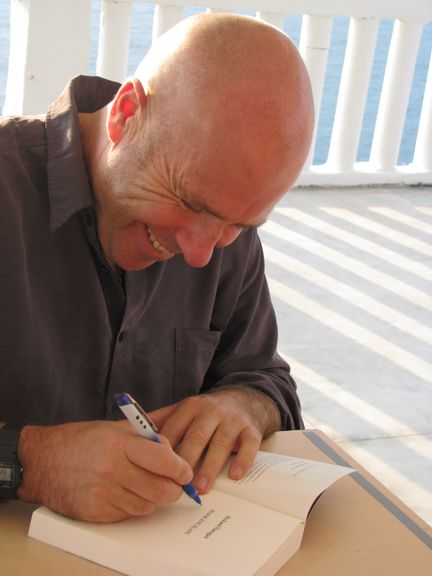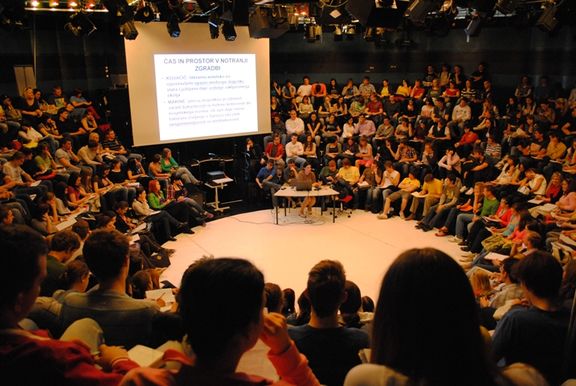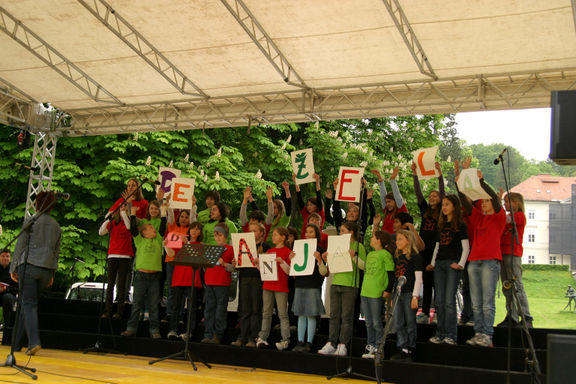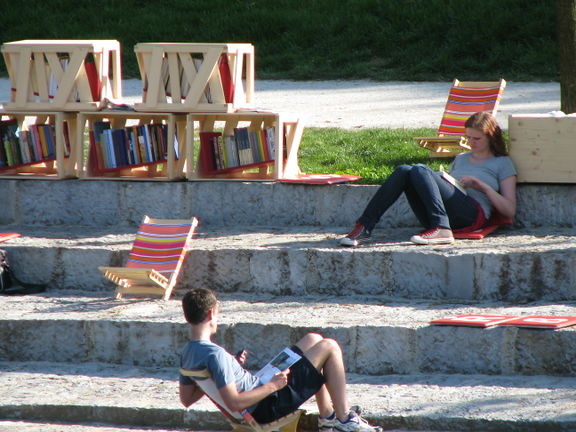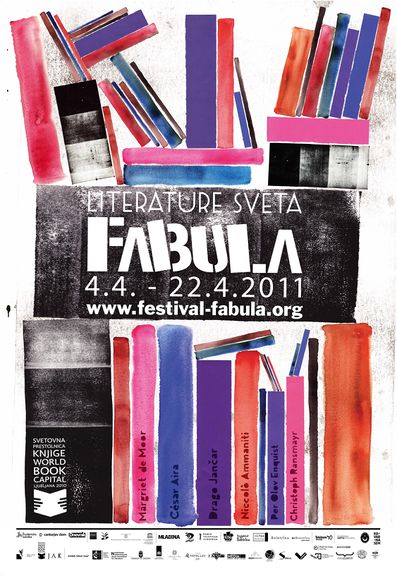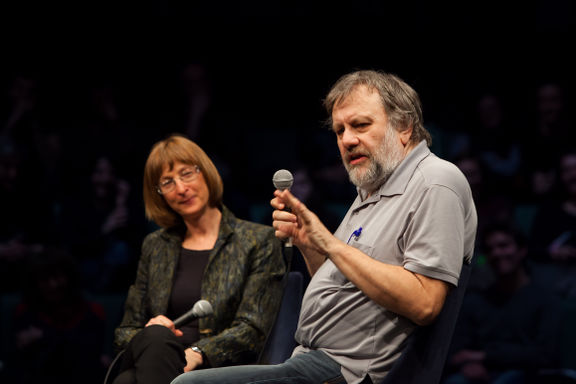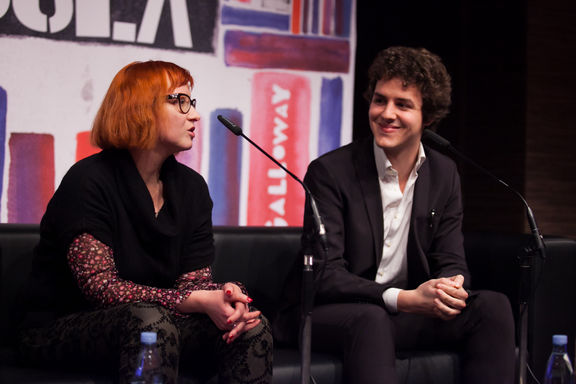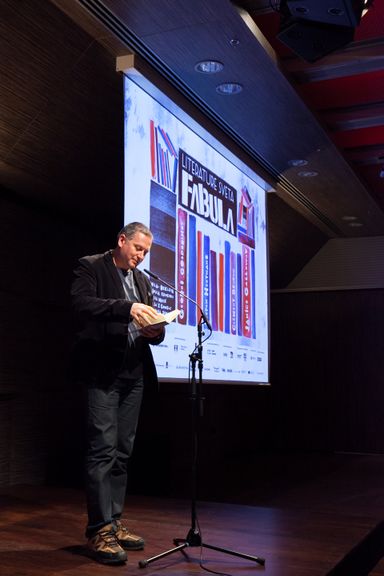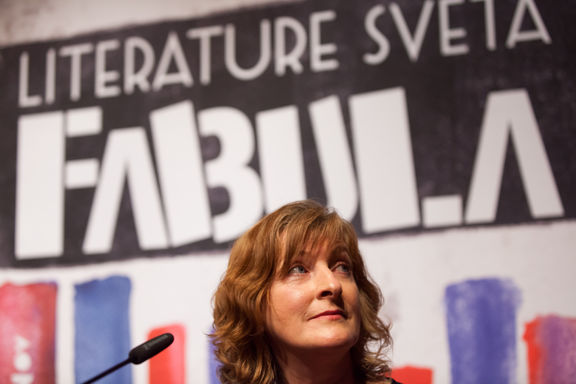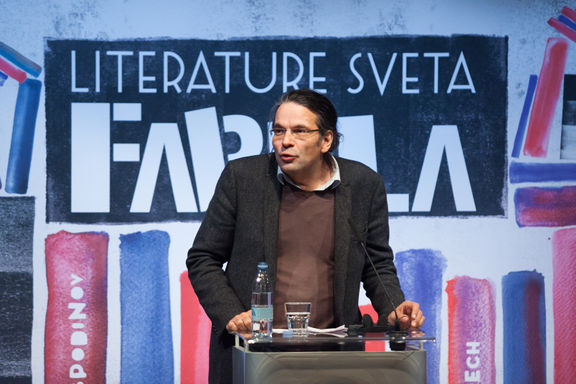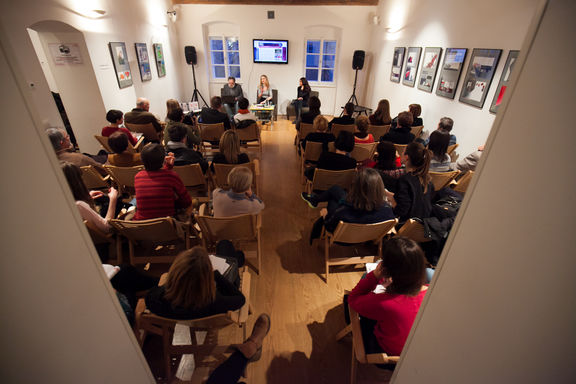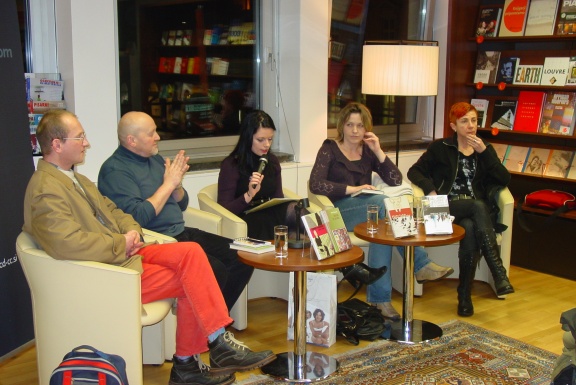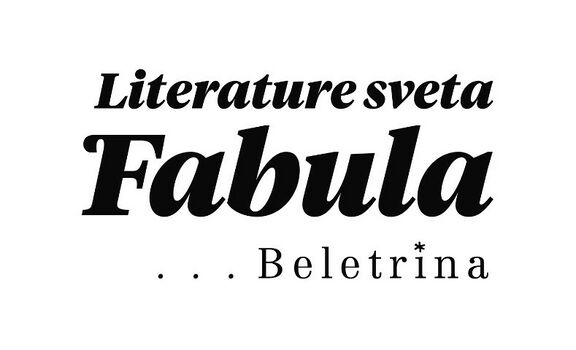Difference between revisions of "World Literatures - Fabula Festival"
(note: marked PROOFREAD DONE on version not yet marked WRITING done) |
(2010 edition) |
||
| Line 1: | Line 1: | ||
{{Article | {{Article | ||
| − | | status = | + | | status = WRITING NIFERTIK! |
| − | | maintainer = | + | | maintainer = Editor |
}} | }} | ||
{{Infobox | {{Infobox | ||
| Line 27: | Line 27: | ||
{{Teaser| | {{Teaser| | ||
| − | + | The underlying concept of Fabula has been to promote readership and the culture of reading in Slovenia. The main focus of the festival is no longer on short stories but on storytelling in general; in addition to book presentations and evening readings, the festival features screenings of films adapted from short stories. Besides renowned European story writers, numerous Slovene authors are featured in the festival, which also includes the bestowal of the [[Fabula Award]] for the best Slovene book of short stories. | |
| + | |||
| + | In 2010 Fabula was one of the central festival events in the frame of the [[World Book Capital Ljubljana 2010]]. | ||
}} | }} | ||
| − | The Fabula Festival takes place in several cities round Slovenia. In 2010 the events | + | |
| + | == Background == | ||
| + | |||
| + | The [[Fabula Festival of Stories]] has been organised since [[Established::2004]] by [[Študentska založba Publishing House]] in collaboration with [[Dnevnik Newspaper|Dnevnik Publishing House]], and initially also by Postojnska jama turizem PLC. | ||
| + | |||
| + | The Fabula Festival takes place in several cities round Slovenia. In 2010 the events were organised in Ljubljana ([[Cankarjev dom]], [[Kinodvor Cinema]], the [[City Museum of Ljubljana]], the [[Slovene Ethnographic Museum]], and [[Beletrina Bookshop]]); Maribor ([[Maribor Synagogue Cultural Centre|Synagogue Cultural Centre]]); Ptuj ([[Ivan Potrč Library, Ptuj|Ivan Potrč Library]]); Ribnica ([[Mikl House Library]]); Koper ([[Mladinska knjiga Bookstores|Dom knjige Bookshop]]); and Trieste, Italy. | ||
| + | |||
| + | |||
| + | == Programme == | ||
The 3rd Fabula Festival of 2006, for example, took place in Ljubljana, Maribor, Postojna, Izola and Koper. In three weeks the festival hosted 10 world-famous writers – Milorad Pavić from Serbia, Miljenko Jergović, Krešimir Mišanović, Krešimir Bagić and Robert Perišić from Croatia, Claudio Magris and Diego Marani from Italy, Georgi Gospodinov from Bulgaria, Kader Abdolah from the Netherlands, and Toby Litt from the United Kingdom – who presented their work at more than 20 literary events. A public discussion entitled "Dramatisation of Novels" took place at the [[Slovene National Theatre Drama Ljubljana]], followed by the play ''Severni sij'' [Northern Lights] by [[Drago Jančar]], performed by the [[Slovene National Theatre Maribor]] and directed by [[Mile Korun]]. Also accompanying the festival were a panel discussion about Slovene and Croatian fiction entitled ''Jeziki mesta'' [Urban Languages], and a conference on film stories. In 2007 the theme of the festival was "Death" and the festival featured some panel discussions involving artists, doctors, sociologists, and anthropologists. | The 3rd Fabula Festival of 2006, for example, took place in Ljubljana, Maribor, Postojna, Izola and Koper. In three weeks the festival hosted 10 world-famous writers – Milorad Pavić from Serbia, Miljenko Jergović, Krešimir Mišanović, Krešimir Bagić and Robert Perišić from Croatia, Claudio Magris and Diego Marani from Italy, Georgi Gospodinov from Bulgaria, Kader Abdolah from the Netherlands, and Toby Litt from the United Kingdom – who presented their work at more than 20 literary events. A public discussion entitled "Dramatisation of Novels" took place at the [[Slovene National Theatre Drama Ljubljana]], followed by the play ''Severni sij'' [Northern Lights] by [[Drago Jančar]], performed by the [[Slovene National Theatre Maribor]] and directed by [[Mile Korun]]. Also accompanying the festival were a panel discussion about Slovene and Croatian fiction entitled ''Jeziki mesta'' [Urban Languages], and a conference on film stories. In 2007 the theme of the festival was "Death" and the festival featured some panel discussions involving artists, doctors, sociologists, and anthropologists. | ||
| + | |||
| + | The 2010 edition of the Fabula was the core event of the [[World Book Capital Ljubljana 2010]]. The festival hosted Herta Müller, David Grossman, Jonathan Franzen, Michal Viewegh, Daniel Kehlmann and Richard Flanagan and presented the new translation of their works into Slovene. In [[Kinodvor Cinema]] the screenings of the films based on the works by Fabula guests took place. | ||
| + | |||
| + | The festival programme brought the book and literature into the streets and squares of the city: the promenade at Breg in the old city centre turned into authors’ cities: the words, music, film and smells depicted the culture of the New York, Jerusalem, Prague, Vienna, and Sydney. The music concerts featured the Chili dogs, Keel Klezmer Band, [[Godalika]], Saxophone quartet 4saxess, AHIMSAUrban band, as well as a huge choir event: eighteen Slovene choirs accompanied by the Philharmonics orchestra sang Slovenian poets. Secondary school students wrote down Prešeren's epic Krst pri Savici (Baptism at the Savica Waterfall) on the Ljubljana promenade in free typographic forms, accompanyied by the rap authors [[Boštjan Gorenc - Pižama]] and [[Klemen Klemen]]. | ||
| + | |||
== See also == | == See also == | ||
Revision as of 08:38, 22 February 2011
Background
The Fabula Festival of Stories has been organised since 2004 by Študentska založba Publishing House in collaboration with Dnevnik Publishing House, and initially also by Postojnska jama turizem PLC.
The Fabula Festival takes place in several cities round Slovenia. In 2010 the events were organised in Ljubljana (Cankarjev dom, Kinodvor Cinema, the City Museum of Ljubljana, the Slovene Ethnographic Museum, and Beletrina Bookshop); Maribor (Synagogue Cultural Centre); Ptuj (Ivan Potrč Library); Ribnica (Mikl House Library); Koper (Dom knjige Bookshop); and Trieste, Italy.
Programme
The 3rd Fabula Festival of 2006, for example, took place in Ljubljana, Maribor, Postojna, Izola and Koper. In three weeks the festival hosted 10 world-famous writers – Milorad Pavić from Serbia, Miljenko Jergović, Krešimir Mišanović, Krešimir Bagić and Robert Perišić from Croatia, Claudio Magris and Diego Marani from Italy, Georgi Gospodinov from Bulgaria, Kader Abdolah from the Netherlands, and Toby Litt from the United Kingdom – who presented their work at more than 20 literary events. A public discussion entitled "Dramatisation of Novels" took place at the Slovene National Theatre Drama Ljubljana, followed by the play Severni sij [Northern Lights] by Drago Jančar, performed by the Slovene National Theatre Maribor and directed by Mile Korun. Also accompanying the festival were a panel discussion about Slovene and Croatian fiction entitled Jeziki mesta [Urban Languages], and a conference on film stories. In 2007 the theme of the festival was "Death" and the festival featured some panel discussions involving artists, doctors, sociologists, and anthropologists.
The 2010 edition of the Fabula was the core event of the World Book Capital Ljubljana 2010. The festival hosted Herta Müller, David Grossman, Jonathan Franzen, Michal Viewegh, Daniel Kehlmann and Richard Flanagan and presented the new translation of their works into Slovene. In Kinodvor Cinema the screenings of the films based on the works by Fabula guests took place.
The festival programme brought the book and literature into the streets and squares of the city: the promenade at Breg in the old city centre turned into authors’ cities: the words, music, film and smells depicted the culture of the New York, Jerusalem, Prague, Vienna, and Sydney. The music concerts featured the Chili dogs, Keel Klezmer Band, Godalika, Saxophone quartet 4saxess, AHIMSAUrban band, as well as a huge choir event: eighteen Slovene choirs accompanied by the Philharmonics orchestra sang Slovenian poets. Secondary school students wrote down Prešeren's epic Krst pri Savici (Baptism at the Savica Waterfall) on the Ljubljana promenade in free typographic forms, accompanyied by the rap authors Boštjan Gorenc - Pižama and Klemen Klemen.



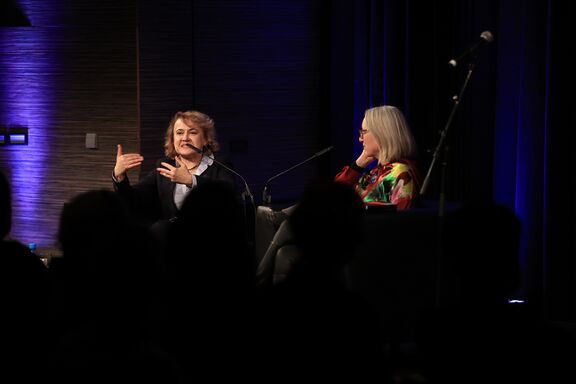
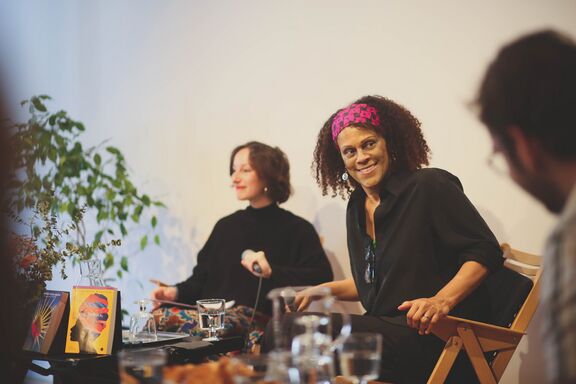
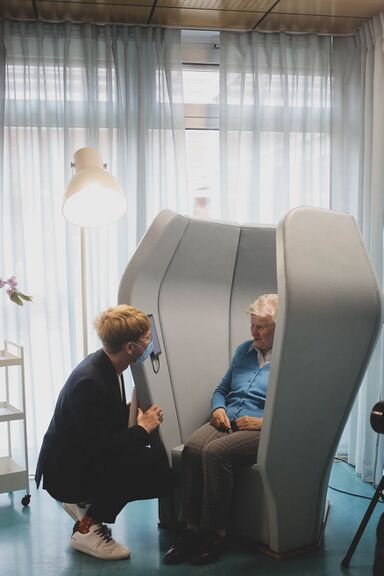
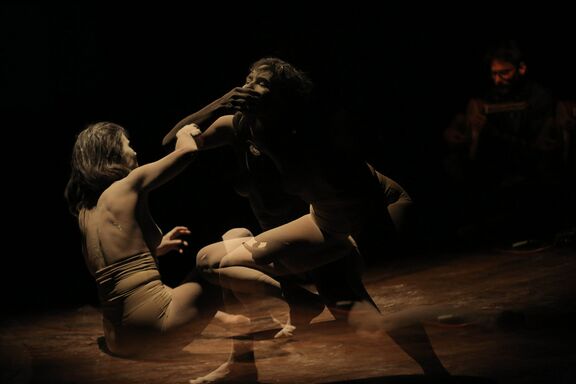
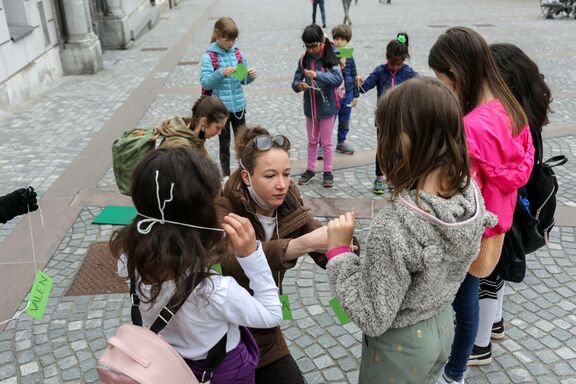
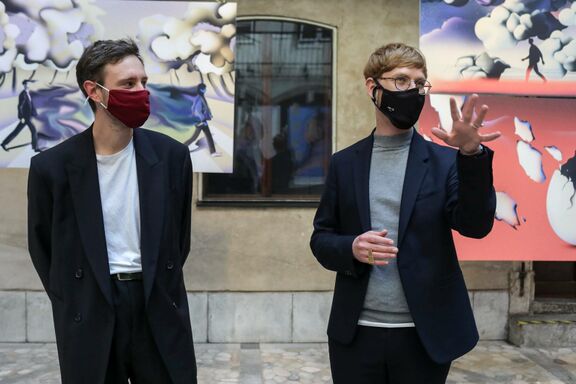
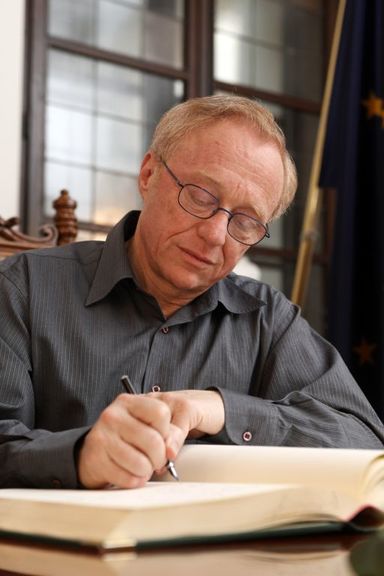
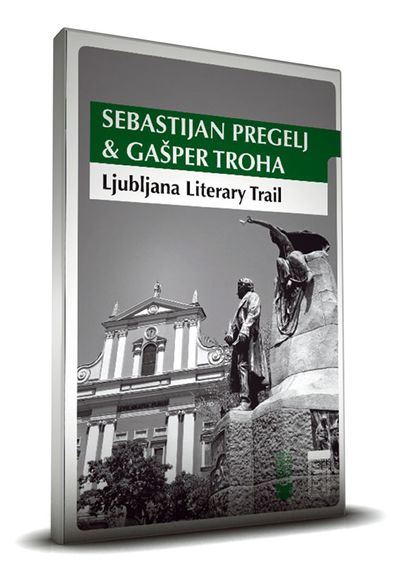
![Niccolò Ammaniti's Jaz in ti [You and Me] book cover, 2010](/images/thumb/7/74/Fabula_Festival_-_11.jpg/455px-Fabula_Festival_-_11.jpg)
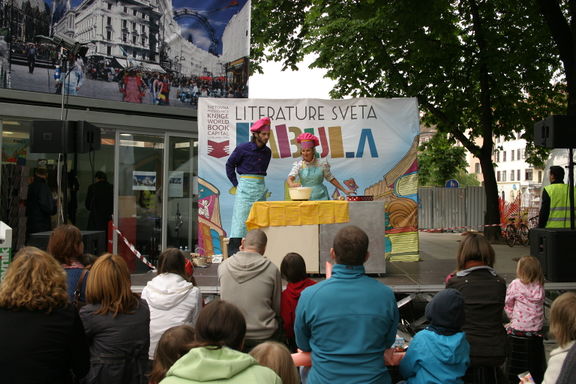
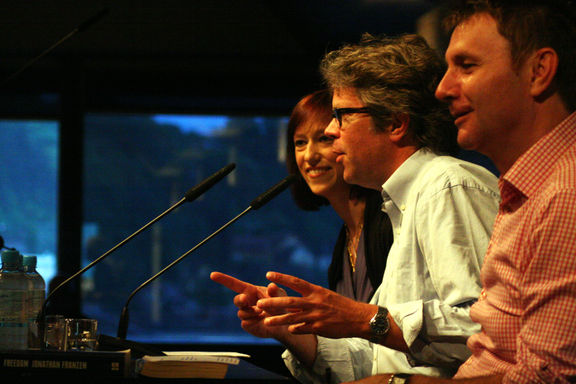
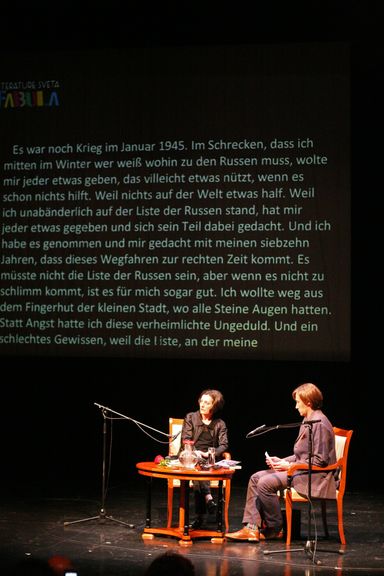
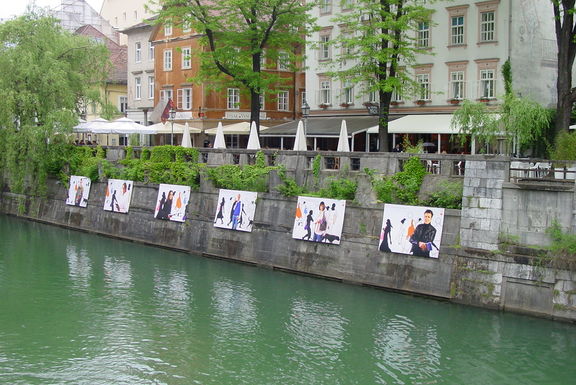
![Prešeren's Coat, by Andreja Brulc, art installation using passages from the poet's longest poem Krst pri Savici[Baptism at Savica] on a new robe dressing Prešeren's monument, World Literatures - Fabula Festival, 2010](/images/thumb/6/64/Fabula_Festival_2010_Preseren%27s_Coat_Photo_Mojca_Pisek.jpg/382px-Fabula_Festival_2010_Preseren%27s_Coat_Photo_Mojca_Pisek.jpg)
